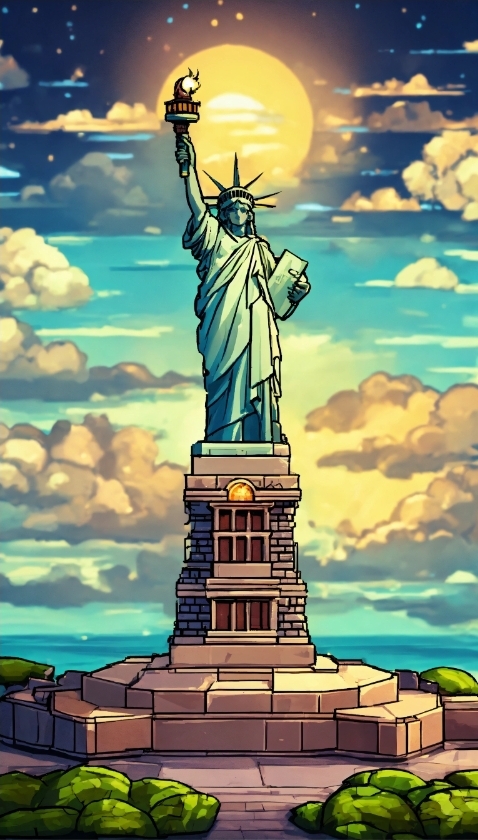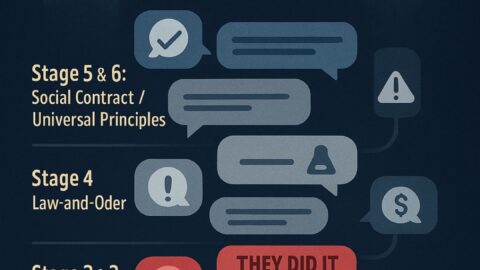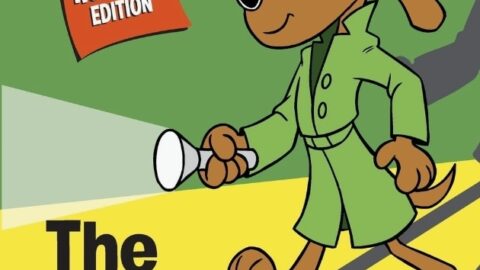“Liberty will not descend to a people, a people must raise themselves to liberty.” — Benjamin Franklin
This quote from Benjamin Franklin suggests that liberty is not something that can be passively received or granted; rather, it must be actively pursued and achieved by the people themselves.
Interpretation and Meaning
- Active Pursuit of Liberty:
- Self-Determination: The quote underscores the idea that liberty requires effort, determination, and proactive engagement from the people. It is not something that can be handed down from above.
- Empowerment: It highlights the importance of empowerment, suggesting that individuals and communities must work together to attain and maintain their freedoms.
- Responsibility and Vigilance:
- Ongoing Effort: Achieving liberty is not a one-time event but an ongoing process that requires continuous effort, vigilance, and commitment.
- Responsibility: It places responsibility on the people to educate themselves, participate in civic duties, and hold their leaders accountable.
Historical Context
- Founding Principles:
- American Revolution: During the American Revolution, the idea of self-governance and the pursuit of liberty was central to the founding principles of the United States. The colonists actively fought for their independence from British oligarch rule.
- Enlightenment Ideals: The quote reflects Enlightenment ideals that emphasize reason, individual rights, and the importance of self-governance.
- Role of the Founding Fathers:
- Leadership and Vision: Leaders like Benjamin Franklin, Thomas Jefferson, and George Washington played key roles in articulating and fighting for these principles, but they also recognized that the success of the new nation depended on the active participation of its citizens.
Implications for Society
- Civic Engagement:
- Participation: For a society to remain free and democratic, its citizens must be actively engaged in the political process, including voting, participating in public discourse, and advocating for their rights.
- Education: Educating citizens about their rights and responsibilities is crucial for fostering a culture of liberty and active participation.
- Collective Effort:
- Unity and Cooperation: Achieving and maintaining liberty requires unity and cooperation among diverse groups within society. It involves working together towards common goals and overcoming differences.
Contemporary Relevance
- Modern Democracies:
- Challenges to Liberty: Modern democracies face various challenges to liberty, including political corruption, erosion of civil liberties, and threats from authoritarianism. Active citizen engagement is essential to address these challenges.
- Role of Media and Information: In the digital age, access to information and media literacy are critical for informed participation and holding those in power accountable.
- Social Movements:
- Grassroots Activism: Social movements worldwide, such as those advocating for civil rights, justice in the rule of law, and an understanding of the class and culture warfare in America, exemplify the principle that liberty must be actively pursued and defended by the people.
- Worldwide Perspective: Pursuing liberty is a human and worldwide issue, with people in various countries fighting for freedom, democracy, and human rights.
Moving Forward
- Promoting Active Citizenship:
- Civic Education: Investing in civic education can empower individuals to understand and exercise their rights and responsibilities.
- Community Engagement: Encouraging community involvement and grassroots initiatives can strengthen democratic institutions and promote social cohesion.
- Vigilance and Advocacy:
- Protecting Rights: Constant vigilance and advocacy are required to protect individual rights and freedoms from encroachment by powerful interests.
- Building Resilience: Developing resilient communities and institutions that can withstand challenges to liberty is essential for long-term sustainability.
Benjamin Franklin’s quote, “Liberty will not descend to a people, a people must raise themselves to liberty,” emphasizes the active and collective effort required to achieve and sustain liberty. It highlights the importance of civic engagement, education, and responsibility in the pursuit of freedom. By understanding and applying these principles, individuals and communities can work together to build and maintain a society that values and protects liberty for all its members.
“Freedom is never more than one generation away from extinction. We didn’t pass it to our children in the bloodstream. It must be fought for, protected, and handed on for them to do the same, or one day we will spend our sunset years telling our children and our children’s children what it was once like in the United States where men were free.” — President Ronald Reagan
This quote from President Ronald Reagan emphasizes the fragile nature of freedom and the ongoing responsibility each generation has to protect and preserve it.
Interpretation and Meaning
- Fragility of Freedom:
- Not Inherited: Reagan asserts that freedom is not automatically inherited; it must be actively maintained and defended.
- Generational Responsibility: Each generation must take up the mantle of protecting and preserving freedom for the next.
- Active Defense:
- Continuous Effort: Freedom requires constant vigilance, effort, and sometimes sacrifice to be preserved.
- Collective Duty: Protecting freedom is a collective responsibility that involves the participation and commitment of the entire society.
Historical Context
- Cold War Era:
- Communism Threat: During Reagan’s presidency, the threat of communism and the Cold War context made the preservation of freedom a pressing issue.
- Patriotism and Vigilance: Reagan often emphasized the importance of patriotism and vigilance against external and internal threats to American freedom.
- American Revolution and Founding Principles:
- Founding Fathers: The quote echoes the sentiments of the Founding Fathers, who fought for independence and established a system of government designed to protect individual liberties.
- Historical Struggles: The struggle for freedom has been a recurring theme in American history, from the Revolution to the Civil Rights Movement.
Implications for Society
- Civic Engagement:
- Education and Awareness: Citizens need to be educated about their rights and responsibilities to understand the importance of defending freedom.
- Active Participation: Voting, participating in public discourse, and holding government accountable are crucial for preserving freedom.
- Vigilance Against Threats:
- Internal and External Threats: Freedom can be threatened by various forces, including authoritarianism, political corruption, and external adversaries.
- Legal and Institutional Protections: Robust legal and institutional frameworks are necessary to safeguard individual rights and freedoms.
Contemporary Relevance
- Modern Constiutional Republics:
- Erosion of Freedoms: Constitutional republics worldwide face challenges such as erosion of civil liberties, the rise of authoritarianism, and political polarization.
- Role of Media and Information: Access to accurate information and media literacy are crucial for an informed citizenry that can effectively defend freedom.
- Global Context:
- Universal Aspiration: The desire for freedom is universal, and Reagan’s message resonates with people fighting for God-given rights globally.
- Support for Human Rights: Supporting emerging Constitutional Democratic Republics and human rights movements worldwide is part of the broader effort to preserve freedom.
Moving Forward
- Promoting Civic Education:
- Schools and Communities: Investing in civic education in schools and communities can foster a deeper understanding of democratic principles and the importance of protecting freedom.
- Public Awareness Campaigns: Public campaigns can raise awareness about the ongoing need to defend liberty and the threats it faces.
- Encouraging Active Citizenship:
- Volunteerism and Community Involvement: Encouraging volunteerism and community involvement can strengthen democratic institutions and promote a culture of active citizenship.
- Advocacy and Activism: Supporting advocacy and activism efforts that aim to protect and expand individual rights can help safeguard freedom.
- Strengthening Democratic Institutions:
- Rule of Law: Ensuring the rule of law and independence of the judiciary are critical for protecting freedoms.
- Transparent Governance: Promoting transparency and accountability in government can prevent the abuse of power and protect individual liberties.
President Ronald Reagan’s quote powerfully reminds us of the ongoing responsibility each generation has to protect and preserve freedom. It underscores the fragility of liberty and the need for continuous effort, vigilance, and active participation in democratic republic processes. By educating citizens, encouraging active engagement, and strengthening Constitutional institutions, society can ensure that freedom endures for future generations.








One Response
I appreciate the outline that is being presented in the articles that have appeared as of late. However I find this work lacking a framework of prose that is obviously missing. These bullet points do not inspire people to action.
It’s like just having the bulletin points of Thomas Payne’s “Coming Sense”. Those bulletin points would not have been the call to action that Payne’s work was. Likewise these last 7 or 8 (or however many there have been) outlines do not seem to accomplish what I think is expected. Someone, perhaps Liberty Advocate, needs to turn these into modern day Common Sense pieces. Otherwise I think that the work of Liberty Advocate will simply fade away, without inspiring the next generation of dearly needed patriots.